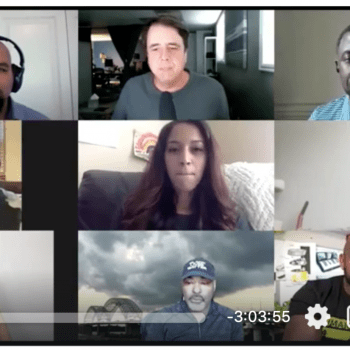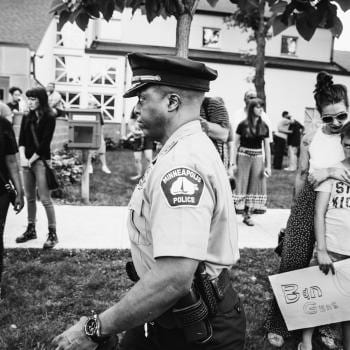I am aware of examples where members go to the bishop with an issue, but the bishop did not address the concern appropriately or wisely (e.g. marriage counseling, masturbation, homosexuality) because the bishop is not a trained counselor. It might be good to help people know when to go to the bishop, how to do so, and how to get what they really need.
On this same theme, there was a story shared of a father whose two sons stated a member of the bishopric sexually abused them. The bishop called the 1-800 line which really just gave the bishop legal advice. The father went to the police (and in fact, left the church for a time over the bishop’s unwillingness to pursue a church disciplinary action unless the member of the bishopric was legally convicted). This is a sticky situation that might be helpful to address on your blog.
What you are referring to here are definitely sticky and many times painful or disillusioned situations. First of all, I want to make clear that my stance is pro-bishop. In other words, I strongly believe that bishops are, 99% of the time, acting with their best intentions in behalf of our best interests. They do this with love and concern for the members of their wards and sacrifice an extraordinary amount of time fulfilling their calling as they simultaneously try to balance the other areas of their lives (spousal, family, career, personal, etc.). They deserve our utmost respect, compassion and sustaining attitudes. That being said there are some points I want to make:
- We know that our leadership is a lay clergy. Bishops come from all walks of life and all types of professional training and careers. Other than general training the church offers its leaders, bishops are not professionally trained in areas of mental health, physical health, counseling, etc.
- Like any of us, bishops cannot escape their culture, personality traits, age and personal experiences and biases that make them who they are. This leads to the fact that at some level, different bishops deal with the same situation differently.
- Again, like any of us, bishops are not perfect. Bishops have a wonderful, yet heavy mantle that squares on their shoulders. This mantle offers inspiration and revelation specifically to help members of a ward. However, it does not make a bishop perfect.
Taking these things into account, we as sustaining members can:
- Be willing to get professional help. We need to remember that the bishop is our spiritual leader, not the solver of all our problems. Many times the bishops themselves will and should encourage their members to seek more help. The best situation is when members are willing to get help from both professional and spiritual resources.
- Look for learning opportunities. Regardless of the experience we are having with our bishop, is there a greater lesson? What can we learn from the current situation? After all, aren’t our challenges supposed to present learning opportunities?
- Be respectfully direct with our bishops about our feelings. We are not helping our bishops if we keep our feelings to ourselves. They are not mind readers and unless we communicate, they may not even know we are feeling discontent with the process of speaking with them. This takes courage and the ability to be frank and honest.
- If necessary, go to someone else. Seek counsel from another member of the bishopric, our elders quorum president, relief society president, or even our stake president. Getting another opinion can be useful and eye-opening.
- Not take things as personally. If we have a negative experience with a bishop, take a step back. We shouldn’t make our entire experience with the gospel and the church about one experience with one individual. Our testimonies will only suffer as a result.
- Have compassion and forgiveness for our bishops. Understanding the things listed above will help us be merciful and forgiving when we feel slighted, misunderstood or flat out wrongly dealt with.
In the case of the father whose sons were sexually abused, this is a tragic event. We must not assume for a second that these types of situations do not occur amongst our clergy and leaders, because they do. This is the utmost insult for victims and their families who have trusted themselves, their children, etc. in the hands of men and women “called” of God. This can be utterly confusing. Although we trust and believe in the process of inspiration when it comes to callings, we must understand that although the church is headed by God, it is run by man. Therefore, mistakes and errors will occur – even when it comes to callings. The doctrines regarding choice and agency explain that Heavenly Father does not stop these types of tragedies from occurring, although I know He would want to. I know that members who find themselves in these situations must struggle deeply with thoughts regarding their testimonies, regarding priesthood authority, and even the gospel in general. What a painful and agonizing trial to bear! It is absolutely appropriate and even necessary to involve the police and local authorities, such as Child Protective Services, when any case of sexual, physical and even psychological abuse is brought up or even legitimately suspected. I know the church has made a lot of progress in educating and training their leaders regarding correct protocol around the reporting and handling of sexual abuse, but again mistakes will still be made. In these cases in particular, if one feels that their local leaders are not appropriately handling the situation, one has every right to approach their stake or even area authorities.











